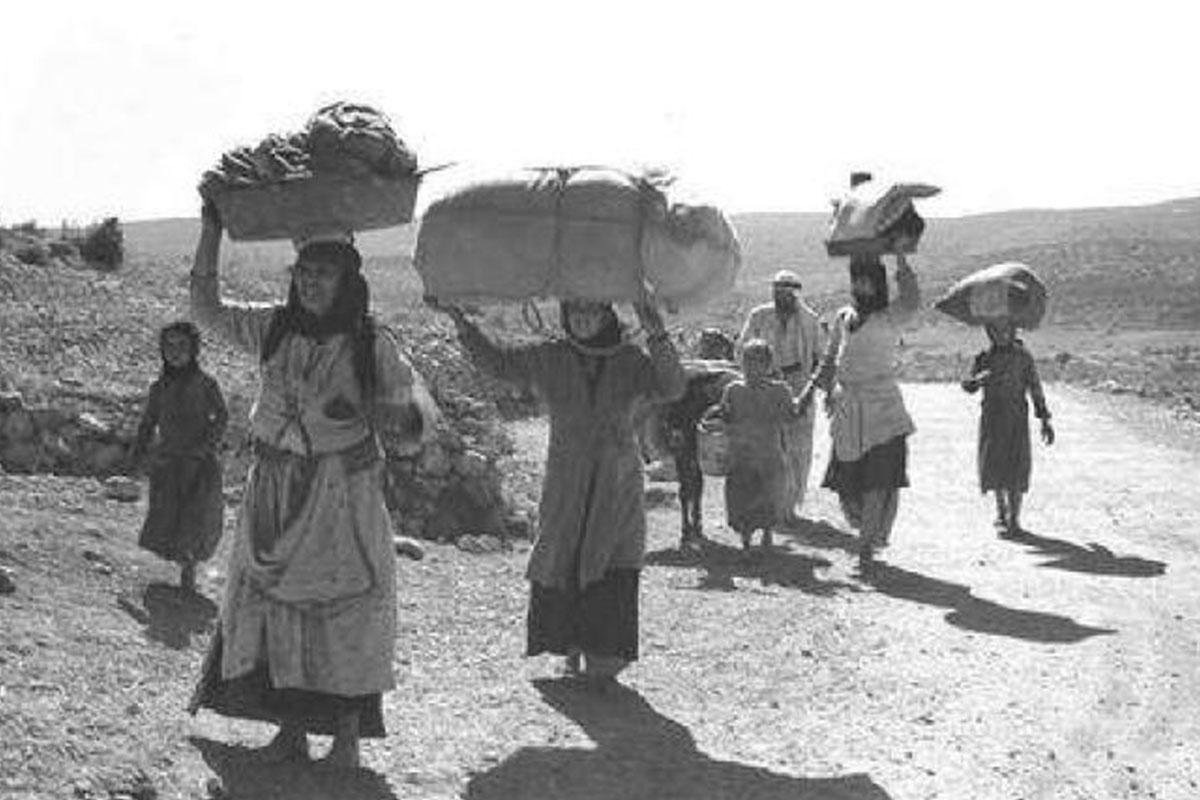70 years of The Nabka in Palestine

by Yousef Abdul-Fattah
This year marks 70 years since the Nakba, which Palestinians such as myself commemorate on the 15th of May of each year. As a Palestinian student in Leeds who comes from two refugee families, I wanted to take this opportunity to open a discussion about the Palestinian narrative. More specifically, why the West fails to regard the narratives of oppressed communities and refugees the way it does to the allies in power, which results in subjectively stating their voices as objective and ours subjective. I ask you to listen to the narrative of oppressed communities, instead of the usual analysis on mainstream media outlets, because living in the UK as a Palestinian student for the last couple of years, I have been outraged by the news about my home from sources that are so blatantly biased towards contradictions that I lived through and witnessed in Palestine.
Some human disasters can change a population and its demographics, whether it be wars or natural disasters; they may disturb the flow of life for specific groups living in a land. Most human disasters are recognised and solved; attempts are put in place to rectify the shift that caused it in the first place. However, one contemporary issue that has been ongoing for decades and sticks out like a sore thumb is the story of the Palestinian refugee.
While the plight of the Palestinian refugee stands as a political debating point and is often used in classrooms as no more than a historical case study for analysis, the issue still affects more than 6 million people today after 70 years of the Nakba. The Nakba (meaning catastrophe) was the event of the ethnic cleansing of the indigenous population of Palestine to make room for the new state of Israel. It consisted of countless massacres, bombings, and shootings of over 500 Palestinians villages, killing tens of thousands and forcing over 700,000 - including my own grandparents - into exile as refugees, who are still today displaced in diaspora around the world. Many are in refugee camps, some are even internally displaced in camps mere miles away from the home which they were forced out of.
There are a few reasons why this issue has become an inevitable talking point in politics and gathered the largest solidarity following worldwide. The first is that this refugee crisis did not just happen because of natural causes or because the Palestinians were simply stuck in a crossfire. The natives were forcefully cleansed of the land to alter the demographics of the new state of Israel to a Jewish majority state, and the same perpetrators of the crime of the Nakba are the same forces refusing the right of return of the refugees today, some of whom still carry the keys to the front doors of their houses. The right of return of refugees is a human right entrenched in UN resolution 194, and has been granted to every refugee population after a ceasefire was established, yet following the 1949 armistice, the Israeli military shot dead any Palestinian attempting to cross into its new borders. This essentially created an apartheid from day one of the conflict by refusing the refugees their undeniable right of return.
The second reason is the treatment of the Israeli state to the Palestinian populations that remained within their newfound borders and in the Palestinian territories it occupied in 1967. Between then and today, this treatment proved that the Nakba was not just an stand alone event: it is an ongoing process of house demolitions, land grabs, citizenship withdrawals and expulsions of Palestinians. This was seen clearly in the East Jerusalem settlement expansions which occurred even under the most liberal Israeli government, and the fact that there is no end in sight to this Nakba. Instead of acknowledging the Nakba and installing reparations to Palestinians, including ending the occupation, allowing the right of return to the refugees, and giving equal rights to everyone on the land (all of which are clauses in International law - Israel wouldn’t be doing us a favour here), every Israeli government has denied the Nakba ever happened and continues to do so.
A first step towards a resolution where a just peace can be established should include the acknowledgement of the event that started the Palestinian suffering that is the Nakba; continuing to deny it will only create more distrust and hierarchical complex. This continuing denial means that the victims of the oppression are never allowed to express their narratives, which results in the whole ‘Palestinians can only be given a right to self-determination with good behaviour’ that we have observed in the last 25 years after the failed Oslo peace process.
